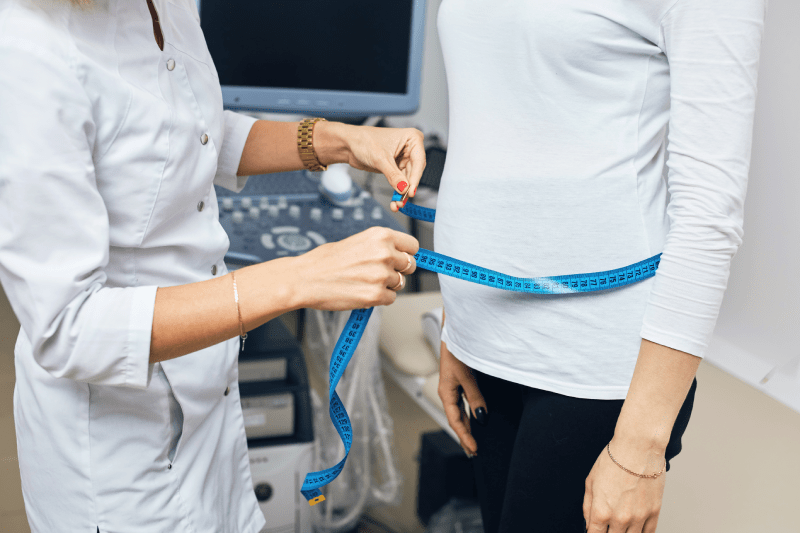What Is The Most Important Criterion In Choosing A Bariatric Surgeon?
The most important criterion in choosing a bariatric surgeon is the surgeon’s period of specialization and experience in this field. Knowing how long a surgeon has been performing gastric sleeve surgeries and how many cases they perform annually provides a clear understanding of their success rates and complication management skills. An experienced surgeon can react more quickly and accurately to unexpected situations that may arise during the operation. Therefore, investigating the surgeon’s specific degree of focus on bariatric surgery, beyond general surgical experience, is of vital importance.
How Does The Surgeon’s Experience Affect The Surgery Fee?
The surgeon’s experience and reputation are one of the most decisive factors directly increasing the surgery fee. Surgeons who have established themselves in the field, possess a high volume of cases, and have international scientific publications naturally demand a higher service fee due to higher demand. Patients should view this extra cost as a guarantee of reliability and experience that minimizes the risk of potential complications. It should be remembered that avoiding costs in bariatric surgery can create greater long-term health risks, making the investment in a proven expert highly worthwhile.
Why Is The Surgeon’s Area Of Expertise Important For Gastric Sleeve Surgery?
The surgeon’s area of specialization is critically important for patient safety and the long-term success of the operation. Gastric sleeve requires specialization in Bariatric and Metabolic Surgery, a sub-branch of general surgery. Being merely a general surgeon is not sufficient; the surgeon’s regular focus on bariatric procedures ensures they are proficient in gastric anatomy, the metabolic effects of obesity, and particularly revisionary surgical techniques. This specific focus leads to the perfection of surgical technique and results in lower complication rates for the patient.
Is The Experience Of The Anesthesiologist In The Surgeon’s Team Important?
Yes, the experience of the anesthesiologist in the surgeon’s team is just as important as the surgeon’s experience in gastric sleeve surgery. Obesity patients are in a higher-risk group regarding anesthesia; therefore, an anesthesiologist experienced in obesity surgery can best manage the patient’s airways, cardiac functions, and anesthesia dosage. Patient safety during and after the operation largely depends on the competence of the anesthesia team, which is why the quality of every specialist in this team should be investigated thoroughly.
How Does A High Case Volume Prove A Surgeon’s Success?
A high case volume proves the surgeon’s practical mastery and adaptability in the field. A surgeon who has performed numerous gastric sleeve operations has dealt with various body types, weight statuses, and co-existing conditions. This broad range of experience allows the surgeon to make correct decisions even in non-standard situations and manage the surgical process smoothly. However, not only the number but also the complication and success rates of these cases should be evaluated together for a comprehensive view of expertise.
What Is The Surgeon’s Role In The Post-Operative Follow-up Process?
The surgeon’s role in the post-operative follow-up process is as crucial as the surgery itself. A successful surgeon does not just perform the operation; they also monitor early complications that may arise during the recovery period and guide the patient toward the correct nutritional discipline. The surgeon’s cooperation with dietitians and psychologists in this process supports the patient’s long-term success. Patients should research beforehand how accessible and involved their surgeon will be in the critical post-operative phase.
What Is The Biggest Mistake Patients Make In Choosing A Surgeon?
The biggest mistake patients make in choosing a surgeon is prioritizing price over quality. Opting for the surgeon or institution offering the lowest price often means a less experienced surgeon, lower quality medical materials (e.g., stapler sets), or inadequate post-operative follow-up. This situation can lead to higher long-term health risks and potential revision costs. The most accurate approach is to consider the value of the service and the surgeon’s expertise, rather than the cost of the surgery alone.
How Do International Accreditations Indicate A Surgeon’s Quality?
International accreditations, particularly the approval of the hospital by organizations like JCI (Joint Commission International), indicate the high standards of the institution where the surgeon works. Surgeons also prove their current knowledge and skills through membership in international professional organizations like IFSO (International Federation for the Surgery of Obesity and Metabolic Disorders). Such certifications are a reliable indicator that the surgeon and their team adhere to globally accepted protocols.
What Critical Questions Should I Ask To Learn About A Surgeon’s Success Rates?
To learn about a surgeon’s success rates, you should first request clear data on complication rates (especially leak and bleeding rates) and expected weight loss percentage. You should ask how many patients have lost more than 50% of their excess weight and how these results have been maintained during the 5-year follow-up period. It is important that the data provided by the surgeon includes long-term, not just short-term, outcomes to truly gauge success.

How Can I Find The Most Suitable Surgeon For The Operation?
Finding the most suitable surgeon for the operation requires a detailed research and consultation process. Firstly, you should examine the surgeon’s resume, their specific focus on bariatric surgery, and the quality of the hospital they are affiliated with. Additionally, you should consider the experiences and reviews of the surgeon’s previous patients. Receiving a recommendation from a reliable intermediary institution for a surgeon with the most appropriate area of expertise for your medical condition and needs can speed up this process effectively.
Why Is Surgeon Experience Twice As Important In Revision Bariatric Surgery?
Surgeon experience in revision bariatric surgery is twice as important as in the initial operation. This is because revision operations are much more technical and complex due to adhesions in the abdomen, altered anatomy, and the effects of the previous surgery. The revision surgeon must have high-level skills in both correcting the faults of the first operation and planning the most appropriate new surgery for the patient’s current condition. This is a burden that can only be undertaken by highly experienced surgeons who have specialized in this area for many years.
How Important Is The Surgeon’s Additional Schooling Or Training Background?
The surgeon’s additional schooling or training background is important for their knowledge base and proficiency in current techniques. Special training they have received in bariatric surgery, especially at reputable centers abroad, demonstrates that the surgeon adopts global standards. It is a sign of confidence for patients that a surgeon does not just graduate from medical school but also continuously attends bariatric surgery conferences and improves themselves. This continuous learning ensures the application of the newest and most reliable techniques.
Should The Surgeon’s Communication Style And Empathy Influence The Choice?
Absolutely yes, the surgeon’s communication style and empathy should significantly influence the choice. Bariatric surgery is not just a physical but also a psychological transformation process. Your surgeon must listen to you, take your concerns seriously, and explain the treatment process in an understandable language. An empathetic surgeon increases patient motivation, reduces pre- and post-operative stress, and encourages the patient to adhere better to doctor’s instructions for optimal results.
Does A Surgeon’s Average Operating Time Indicate Quality?
Yes, a surgeon’s average operating time indirectly indicates quality. Gastric sleeve surgery, under standard conditions by an experienced team, usually takes between 45 minutes and 1.5 hours. Too short a duration may indicate rushed work, while too long may signal technical inadequacy or unexpected difficulties. An experienced surgeon completes the procedure within a standard timeframe, meticulously and without unnecessary haste, maintaining a low complication rate.
What Should Be The Hospital Criteria Used By The Surgeon For The Operation?
The hospital used by the surgeon for the operation must have a well-equipped intensive care unit (ICU) and a general surgery, internal medicine, and cardiology team on standby 24 hours a day. It is important that the hospital has the infrastructure suitable not only for aesthetics but also for complex bariatric surgery. The presence of high-quality stapler sets and laparoscopic equipment are also indispensable criteria that support the quality of the surgeon’s work.
How Should The Surgeon Intervene In My Weight Loss Process?
The surgeon’s intervention in your weight loss process should be within a multidisciplinary approach. The surgeon should not only perform the operation but also act as the leader coordinating the team of dietitians and psychologists. The surgeon must approve the necessary pre-operative weight loss (pre-op diet) and post-operative nutritional protocols. The surgeon must intervene by regularly interpreting medical follow-ups and blood tests to ensure the patient’s long-term success.
Why Are The Surgeon’s Overseas Experience And International Relations Important?
The surgeon’s overseas experience and international relations demonstrate their ability to continuously learn and stay current. Surgeons who have trained or interned abroad can bring different surgical approaches and global treatment standards to Turkey. Participation in international congresses and scientific publications prove that the surgeon keeps their knowledge current and engages in information exchange with colleagues worldwide. This means that the treatment applied to the patient is in line with the latest scientific developments.
How Should I Evaluate A Successful Surgeon’s Patient Reviews?
When evaluating a successful surgeon’s patient reviews, you should focus not just on overall satisfaction but on the details and duration of the comments. Especially follow-up comments longer than 1 year show how effective the surgeon is in long-term success. Pay attention to how honest and realistic the language in the comments is; comments that talk about struggles and successes in a balanced way are more reliable than overly exaggerated praise.
How Does The Patient’s Age And Existing Illnesses Play A Role In Surgeon Selection?
The patient’s age and existing illnesses (diabetes, high blood pressure, etc.) play a very important role in surgeon selection. Patients who are elderly or have multiple co-morbidities carry a higher surgical risk. The surgeon undertaking the surgery for such patients must have proven experience in high-risk cases and impeccable cooperation experience with the anesthesia and internal medicine team in managing these diseases.
Which Medical Supplies Do The Best Surgeons Prefer To Use?
The best surgeons prefer to use international standard and FDA/CE approved medical supplies that maximize patient safety and reduce the risk of complications. The quality of the laparoscopic instruments used in the surgery and, crucially, the stapler sets used to close the stomach are essential. Quality stapler sets minimize the risk of leakage. Your surgeon’s transparency on this matter and their explanation of the brand of the material used is an indicator of their confidence in its quality.
Is It Important How Many Different Obesity Surgeries The Surgeon Can Perform?
Yes, it is important how many different obesity surgeries (Gastric Sleeve, Gastric Bypass, SADI-S, etc.) the surgeon can perform. A surgeon mastering different techniques, rather than focusing on just one method, provides the flexibility to choose the most suitable surgical method for the patient’s individual situation. Especially in cases requiring revisionary surgery, the surgeon’s ability to transition between different techniques ensures the patient makes the most of a second chance.
How Is The Surgeon’s Success Rate Monitored In Hospital Records?
The surgeon’s success rate is tracked in detail in hospital records in compliance with confidentiality rules. Hospitals typically record critical complication data such as leakage, infection, bleeding, and readmission rates. Surgeons regularly analyze this data to monitor their own performance. Although patients may not be able to see these general statistics directly, surgical consulting firms can provide guidance based on this information and the surgeon’s overall track record.
What Is The Impact Of The Surgeon’s Team Harmony On Surgical Success?
The harmony of the surgeon with their team is one of the cornerstones of surgical success. Perfect coordination among the operating room team (assistant surgeons, nurses, anesthesia team) leads to shorter surgical duration and a reduced risk of error. A well-coordinated team responds faster and more effectively in an unexpected emergency. Therefore, the fact that the surgeon has been working with the same team for many years is an added source of confidence for patients.
What Does The Accessibility Of The Surgeon’s Appointments Indicate?
The accessibility of the surgeon’s appointments indicates both the surgeon’s popularity and the time they allocate to their patients. A very busy and popular surgeon may have a long waiting time, but this reflects confidence in the surgeon’s experience. What is important is that the surgeon or their primary team is easily reachable in emergency situations during the critical post-operative period. The waiting time for the initial appointment is an indirect sign of the surgeon’s demand.
Are The Surgeon’s National Or International Scientific Publications Important?
Yes, the surgeon’s national or international scientific publications indicate not only the surgeon’s practical skills but also their theoretical knowledge and scientific contributions. A publishing surgeon follows the latest research in their field and shares their own experiences with the scientific community. This proves that the surgical techniques applied are based on scientific fundamentals and that the surgeon continuously updates their knowledge.

What Critical Questions Should I Ask My Surgeon During The Consultation?
During the consultation, you should ask your surgeon about their years of bariatric surgery experience, how many gastric sleeve surgeries they have performed in the last 12 months, their leak complication rates, and the details of their post-operative follow-up plan. Additionally, it is vital to learn the brand of stapler sets used and whether you can reach them 24/7 in an emergency after the surgery. These questions measure the surgeon’s transparency and commitment.
Is The Surgeon’s Knowledge Of Aesthetic Body Contouring Necessary?
It is preferred that the surgeon performing gastric sleeve surgery has knowledge of aesthetic body contouring (tummy tuck, arm lift, etc.), but it is not mandatory. The bariatric surgeon should be able to anticipate aesthetic issues that will arise after major weight loss and be knowledgeable enough to refer the patient to an appropriate plastic surgeon. This collaboration ensures that the patient’s weight loss journey is managed holistically, both medically and aesthetically.
Why Should Price Quotes Offered By Different Surgeons Not Be Compared Solely On Cost?
Price quotes offered by different surgeons can be misleading, like comparing apples and oranges, and should therefore not be compared solely on price. A low-priced quote may mean that the surgeon’s experience, the quality of the stapler sets used, the hospital’s technological equipment, or the duration of post-operative follow-up have been excluded from the price. When comparing price quotes, it is necessary to evaluate the scope, quality, and the surgeon’s background on equal terms.
What Does It Mean If A Surgeon Has Mentored Others In Bariatric Surgery?
If a surgeon has mentored (trained) others in bariatric surgery, it means that the surgeon’s knowledge and skills are approved and appreciated by their peers. A mentoring surgeon not only successfully performs their own surgeries but is also competent enough to transfer their expertise in the field to younger surgeons. This situation is an indicator of the highest level of confidence and competence for patients.
How Should Post-Operative Early Complication Management Be Inquired About?
The surgeon’s post-operative early complication management should be inquired about through their relationship with the hospital’s infrastructure. The surgeon must guarantee the existence of a 24/7 ready emergency intervention protocol and an experienced intensive care team in the hospital for common complications like leakage or bleeding. More than the frequency of complications, how quickly and successfully they are managed when they arise reveals the surgeon’s true expertise.
What Should Be The Average Pre-Consultation Time For An Expert Surgeon?
The average pre-consultation time for an expert surgeon should be sufficient and productive enough to answer all the patient’s questions and meticulously review their medical history. This duration can generally vary between 30 minutes and 1 hour. A surgeon rushing or not allocating time to listen to the patient’s concerns may indicate that an adequate personalized treatment plan is not being created. A quality consultation enhances the success of the surgical process.
How Should Negative Patient Reviews Be Evaluated In Surgeon Selection?
Negative patient reviews in surgeon selection should be evaluated carefully and with an objective perspective. Negatives such as failure to lose weight after surgery may often result from patient non-compliance rather than surgical error. However, negative comments about rare, serious complications should be examined for the surgeon’s intervention success and communication style. Every surgeon may encounter complications; what matters is transparency and quality of management.
What Is The Importance Of A Surgeon’s Membership In Which Medical Associations?
A surgeon’s membership in national associations like the Turkish Society of Bariatric Surgery (TOSS) and especially international associations like the IFSO (International Federation for the Surgery of Obesity and Metabolic Disorders) is important. These memberships indicate that the surgeon adheres to ethical rules in the field, follows current developments, and commits to continuous professional development. These associations also serve as institutions confirming that the surgeon’s area of specialization is bariatric surgery.
Why Is It A Plus To Have A Psychologist In The Surgeon’s Team?
Having a psychologist in the surgeon’s team is a big plus because bariatric surgery is a process that requires managing emotional eating disorders and psychological adaptation. Pre-operative psychological evaluation is mandatory. Post-operatively, psychological support is vital for the patient to adapt to their new body image, permanently change eating habits, and cope with possible mood changes. A holistic approach significantly increases the chance of long-term success.
Should I Be Informed About The Anesthesia Technique Used By The Surgeon?
Yes, you should be informed about the anesthesia technique used by the surgeon and the anesthesia team. General anesthesia is usually administered in obesity surgery, but the type of medication used and specialized techniques, especially for the patient’s airway management (intubation), are important. You should inquire whether special protocols are applied to minimize anesthesia risk in obese patients and about the bariatric surgery experience of the anesthesiologist.
Why Is The Surgeon’s Knowledge Of The Pre-Operative Diet Protocol Important?
The surgeon’s knowledge of the pre-operative (pre-op) diet protocol and adherence to it are important. The pre-operative diet reduces fat in the liver, shrinking the surgical area and making the surgery safer. Your surgeon emphasizing the importance of this diet and working in cooperation with a dietitian shows how meticulous they are about the process. A successful surgeon never overlooks the importance of the pre-op diet phase.
What Should Be The Surgeon’s Post-Operative Pain Control Plan?
The surgeon’s post-operative pain control plan should be effective and personalized for the patient’s comfort and early mobilization. Long-acting local anesthetic blocks (e.g., TAP block) applied during the surgery and regular, powerful painkillers given intravenously or orally after the surgery are the main elements of this plan. Good pain control ensures the patient gets back on their feet early, thereby reducing the risk of blood clots.

Should Commercial Interests Play A Role In The Surgeon’s Choice Of Hospital?
No, commercial interests should never play a role in the surgeon’s choice of hospital. The surgeon should choose the hospital with the best technological infrastructure, intensive care unit, and expert support team for the patient’s safety and health, not the one offering the lowest price. A surgeon recommending a particular hospital simply because it is low-cost raises suspicion that service quality might be compromised.
Do The Best Surgeons Perform Revision Surgeries Themselves?
Yes, the best and most experienced surgeons in the field generally perform revision surgeries themselves. Revision surgery is a procedure that can be technically challenging even for the surgeon who performed the initial operation. Therefore, a surgeon undertaking the revision needs stemming from their own surgeries and being competent in this area demonstrates the surgeon’s overall level of expertise and patient responsibility.
What Are The Characteristics Of Surgeons With High Success Rates?
The characteristics of surgeons with high success rates are not limited to technical skill alone. These surgeons are detail-oriented, place great importance on the pre-operative preparation process, skillfully manage the multidisciplinary team, and can establish long-term relationships with their patients. High success is the result of a combination of impeccable surgical technique, correct patient selection, and comprehensive post-operative follow-up.
What Is The Importance Of Patient References In Surgeon Selection?
Patient references are the real-life proof of the service offered by the surgeon. The experiences of other patients provide valuable information about the surgeon’s communication style, the quality of post-operative support, and long-term outcomes. However, it is important to obtain references not only from online platforms but, if possible, directly through the surgical firm to access more reliable and verified feedback.
How Much Time Should I Allocate When Choosing A Surgeon For Gastric Sleeve Surgery?
You should not rush when choosing a surgeon for gastric sleeve surgery and should allocate at least a few weeks for this process. You should allow enough time to gather information from different surgeons and hospitals, conduct pre-consultations, and thoroughly examine the scope of price quotes. Being under time pressure when making this vital decision increases the risk of making the wrong choice. A quality selection is always more valuable than a quick one.
Why Is The Quality Of The Hospital’s Intensive Care Unit Critical?
The quality of the hospital’s intensive care unit (ICU) is critical because rare but life-threatening complications (such as leakage) after gastric sleeve surgery are treated in the ICU. An internationally standard, well-equipped ICU with experienced personnel in managing bariatric surgery complications can save the patient’s life in case of a complication. You must ensure that your surgeon works in cooperation with an ICU that is easily accessible and staffed by competent professionals.
How Detailed Should A Successful Surgeon’s Interest In My Medical History Be?
A successful surgeon’s level of interest in your medical history should be extremely detailed and meticulous. The surgeon should focus not only on your current weight but also on your co-morbidities, all medications you use, and previous surgeries. During the consultation, they should ask questions, request your old medical reports, and ensure that no risk factors are overlooked. This detailed interest forms the basis of a personalized and safe surgical plan.
How Should I Start To Reach A Reliable Gastric Sleeve Surgeon?
To reach a reliable gastric sleeve surgeon, you should first contact an expert and licensed medical tourism consulting firm with whom you can openly share your medical history and expectations. These firms will compile the experience, success, and accreditation data of suitable surgeons for you, providing the most accurate guidance.
You can contact Cure Holiday to access the most experienced bariatric surgeons in Turkey and international standard treatment packages, receive personalized consultation, and start a reliable health journey with confidence.



